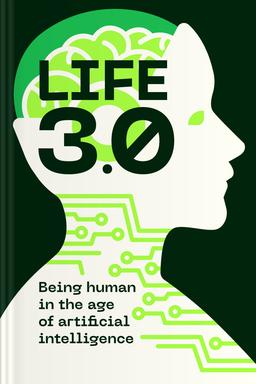What is Everybody Lies about?
This thought-provoking exploration delves into how big data reveals our true thoughts and behaviors, often contrasting sharply with social norms and self-reported data. By analyzing online searches and digital footprints, the author unveils surprising insights about human nature, revealing dark truths about our desires and prejudices. The book challenges conventional wisdom, illustrating how the internet serves as a unique lens through which to understand society's hidden secrets.
Who should read Everybody Lies
- Data scientists seeking insights from big data.
- Marketers wanting to understand consumer behavior online.
- Psychology enthusiasts curious about human truthfulness.
What is CHATGPT BOOK FOR BEGINNERS about?
This comprehensive guide introduces readers to the powerful capabilities of ChatGPT, offering step-by-step instructions for beginners. It covers practical applications to enhance productivity and strategies for monetizing skills through this technology. Readers will learn effective techniques to harness ChatGPT's potential, making it an essential resource for anyone looking to integrate AI into their work and daily life.
Who should read CHATGPT BOOK FOR BEGINNERS
- Aspiring entrepreneurs looking to boost productivity.
- Beginners seeking to learn AI tools effectively.
- Educators wanting to enhance teaching methods with technology.
What is Chip War about?
This compelling narrative explores the global battle for semiconductor supremacy and its implications for national security and economic power. It delves into the history, technology, and geopolitics surrounding chips, highlighting how nations vie for innovation and control in this crucial industry. The book provides insight into the future of technology and the race to dominate a resource vital for modern life.
Who should read Chip War
- Tech enthusiasts eager to understand semiconductor geopolitics.
- Business professionals navigating the global technology landscape.
- Students studying international relations and technology innovation.
What is Cribsheet about?
This insightful guide uses data and research to provide evidence-based parenting advice for the early years of a child's life. By addressing common challenges and decisions, it empowers parents to make informed choices that suit their family's needs. With a focus on relaxation and balance, the book aims to reduce anxiety and promote a confident parenting approach from birth through preschool.
Who should read Cribsheet
- New parents seeking data-driven parenting advice.
- Parents of toddlers looking for evidence-based strategies.
- Expecting parents wanting a research-backed approach to childcare.
What is Life 3.0 about?
Exploring the future of artificial intelligence and its potential impact on society, this book delves into the ethical and philosophical questions surrounding AI development. The author examines scenarios ranging from utopian to dystopian futures, emphasizing the importance of shaping technology to enhance human life. Ultimately, it encourages readers to consider how humanity can thrive in an era defined by intelligent machines.
Who should read Life 3.0
- Tech enthusiasts curious about AI's future impact.
- Students studying artificial intelligence and its societal implications.
- Professionals in technology seeking insights on ethical AI development.




